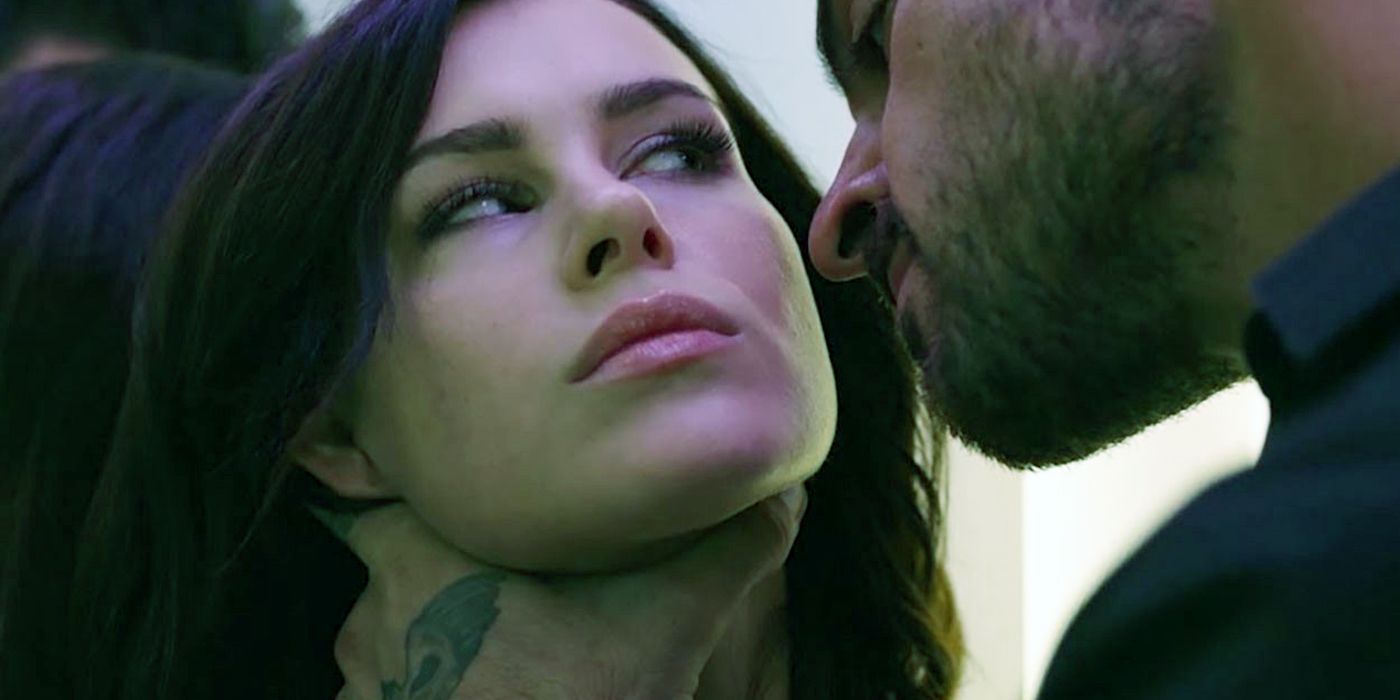Netflix's erotic thriller 365 Days (365 DNI) has proven to be a controversial movie for the streaming platform. The feature film is based on a Polish novel by cosmetologist-turned-author Blanka Lipiński, who reportedly wrote her own novel series inspired by the success of 50 Shades of Grey. Netflix's 365 Days adapts the first novel in the series, introducing audiences to the problematic relationship between Laura Biel and Massimo Torricelli. The movie became available on Netflix in June 2020.
Directed by Barbara Białowąs and Tomasz Mandes, 365 Days is a too hot to handle film offering soft-core thrills for audiences. The story centers around Laura, a tough executive with a weak heart and a lame boyfriend. She is kidnapped during a birthday trip in Sicily by Mafia boss Massimo, who has been fixated on her for the last five years: after noticing her on a beach, he and his father were both shot. Massimo survived, but his father did not. The experience left the young man to take over the "family business" — and obsessed with the beautiful face he saw moments before the attack. When he finally "finds" the woman, Laura, he kidnaps her for a year so that she'll fall in love with him.
365 Days is a guilty pleasure romance movie filled with unbelievable events, unintentionally hilarious dialogue, and very little actual plot; however, the narrative issues aren't the reason why the film has attracted controversy. Rather, the movie's depiction of Massimo's treatment of Laura — and her response to that treatment — have lead some reviewers to condemn the movie for glorifying domestic abuse and perpetuating rape culture.
365 Days tries to present titillating scenes that far too often cross the line between acceptable and unacceptable behavior. Massimo is more than a dominant alpha male: he is actively a predator. Not only does Massio kidnap Laura, but he frequently abuses her — both emotionally and physically. He infantilizes her, orders her around, and — despite his frequent claims of not being a monster, and that he won't touch her unless she says yes — repeatedly gropes, caresses, and generally manhandles Laura without her consent. As Hedy Phillips notes in Popsugar, the gender dynamic this movie celebrates is deeply troubling: "The more TV shows and movies run with abusive relationships, the more it normalizes them, and the more people think it's OK not just to abuse others but to stay in abusive relationships." These interactions are by their very nature not consensual because Laura is being held against her will.
What is perhaps most disturbing about 365 Days is the manner by which the movie frames Massimo's at times horrifying actions as sexually thrilling, implicitly excusing his abuse by suggesting that Laura really wants it, and/or deserves his treatment. In one scene — which accidentally echoes Matt Lauer's inappropriate sexual behavior — Massimo locks Laura in a room with him and refuses to let her leave, despite her repeated pleas. He then wrestles her onto a bed, ties her up spread eagle so that he has "access" to her, molests her, then forces her to watch him receive oral sex from another woman. In another scene, after Laura rejects his sexual advances in the shower and turns to leave, Massimo grabs her roughly by the neck and pulls her violently towards him; the non-diegetic music suggests the act is exciting, but the image would be more suited to a horror film.
Unfortunately, despite it's 0% Rotten Tomatoes score, 365 Days became one of Netflix's most-watched properties shortly after its release. Hopefully, many audiences see through the movie's cheap thrills and recognize the toxic nature of Laura and Massimo's relationship — otherwise, audiences can expect more stories like this in the future.


